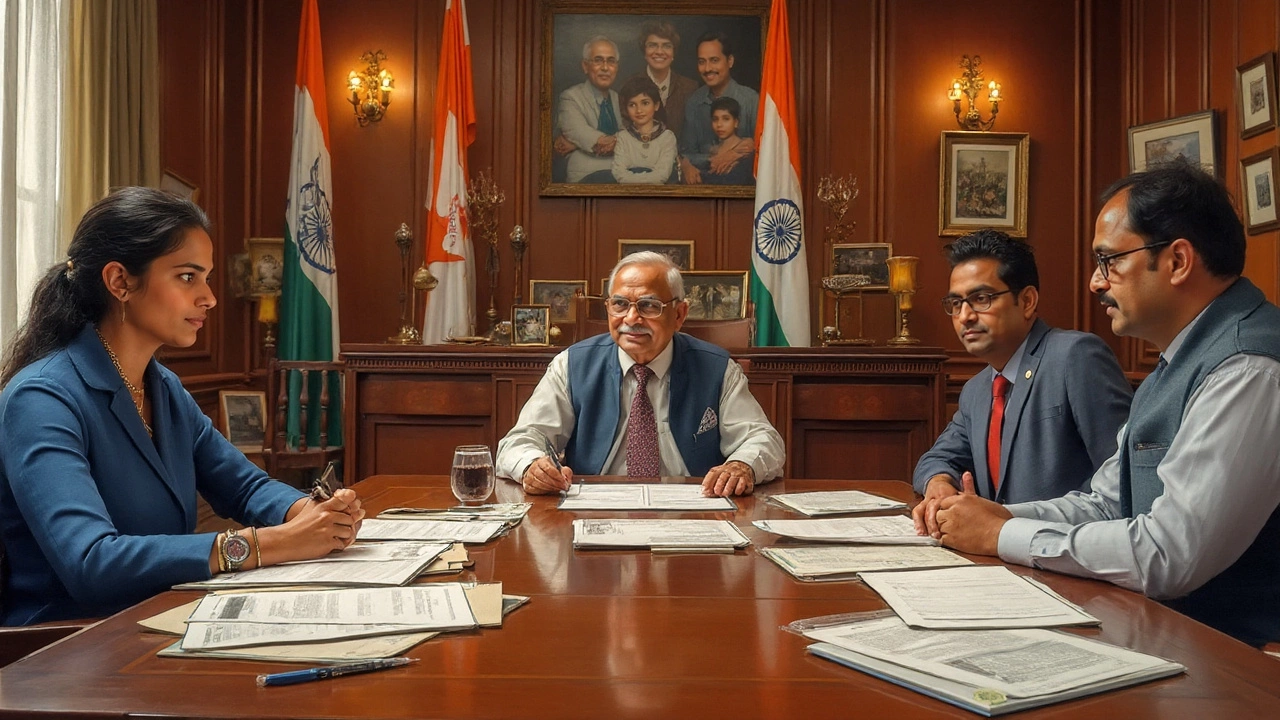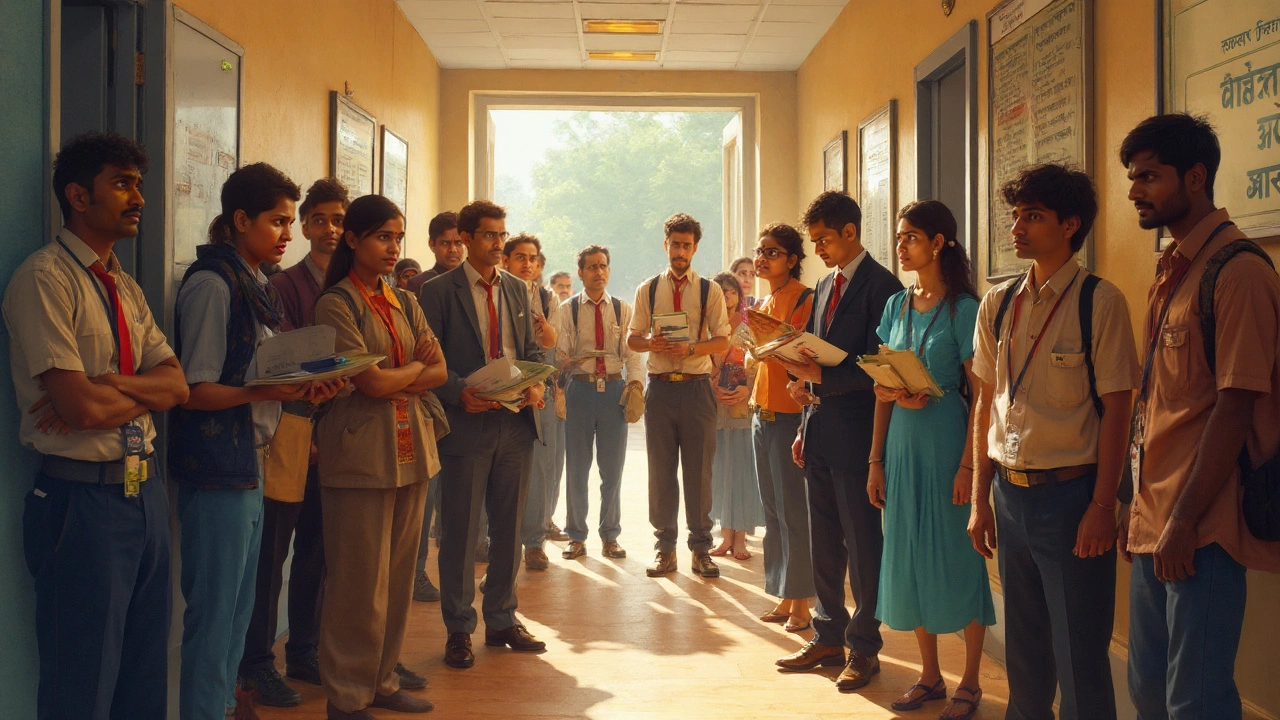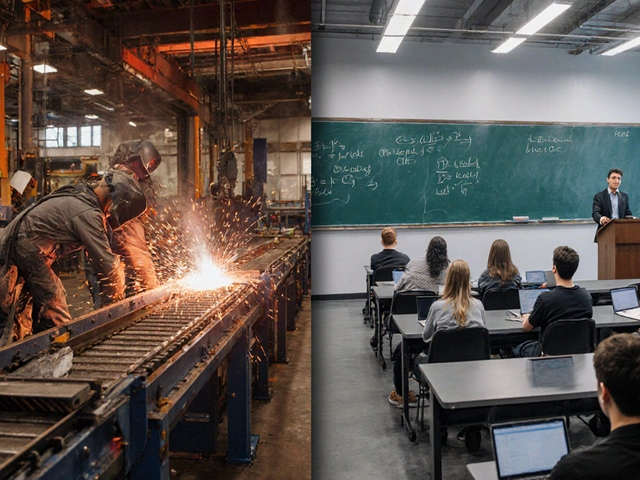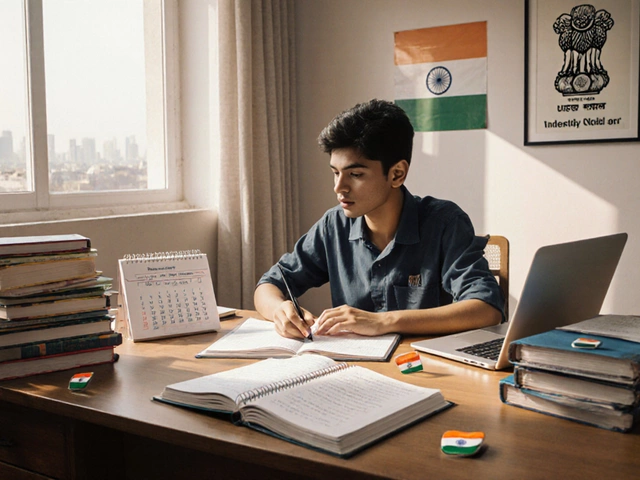Ever wondered why landing a government job feels like clearing a multi-level video game? The process isn’t just about ticking off forms or passing written papers—it’s what happens when you make it to the last stretch that catches most people off guard: the interviews. People talk about government job security and perks, but not enough about what it takes to actually sit across the panel. The sheer unpredictability of interview rounds—sometimes one, sometimes three—can keep even the calmest folks up at night. And with competition touching new highs in 2025, understanding what’s ahead can mean the difference between anxiety and confidence.
Understanding the Stages: Not Just a Single Interview
Most people start by thinking, “How many interviews does it really take to get a government job?” Here’s the truth: it’s rarely as simple as just facing one round after clearing your written test. The interview process for government jobs in India (and in many countries) actually depends a lot on the post you’re applying for. The Public Service Commission, Railway Recruitment Boards, Staff Selection Commission, and state boards all have their unique systems. Sometimes you might face what’s called a ‘personality test’ or a ‘viva voce’—these are fancy names for interviews, but don’t be fooled, each has its own twists.
For example, civil services like the UPSC IAS process almost always end with one major interview round, but that’s after you’ve already gone through a preliminary exam and a super-tough written main exam. On the other hand, some banking jobs might toss in an initial screening interview and then a final HR round. Railways may do a round focused on aptitude before a classic face-to-face board grill. There’s no cookie-cutter rule—sometimes it’s just one round, and sometimes it ticks up to two, especially for higher ranks.
And then there are exams where the so-called interview may involve a group discussion, medical exam, background verification, or even a ‘document verification’ round, which can feel like an interview when you’re peppered with questions about every certificate you own. In 2024, more than 31% of government job aspirants who made it to the personality test round for central services reported facing at least two direct interactions with board or department officials, not just one.
So what’s the takeaway? You’re looking at anywhere between one to three separate interviews or interactive assessments, depending on the role. Clerical jobs might only have one post-exam interview, while managerial or gazetted officer posts (think IAS, IPS, PCS, RBI Grade B, etc.) often roll out multiple rounds with different panels.
You might feel confused by rumors and WhatsApp tips. The only way to really know: Check the official notification for your job. Every ad will spell out the selection process, the stages, and which ones count as interviews. Don’t skip this—or you’ll walk in underprepared.
Types of Interviews and What They Assess
The word ‘interview’ might sound straightforward, but there’s a world of difference depending on the department. Let’s get real with some examples. UPSC’s final interview is actually called the Personality Test. Candidates sit in front of a panel—usually five seasoned officials who are keen on testing the mindset, not just the knowledge. It’s almost never about factual questions; it’s about finding out whether you can think on your feet, stay calm, show analytical reasoning, and prove you’re ready to handle the unpredictable world of public administration. The duration? Anywhere from 25 minutes to one hour, depending on how your answers go.
Bank jobs under IBPS, SBI, or RBI have their own interview phases after you clear the written round. For IBPS PO, you’re likely to sit through an interview that lasts roughly 20-30 minutes. Here, questions lean more on practical know-how: customer handling, current finance issues, or even how you’d promote financial inclusion in your area. RBI Grade B, which is considered one of the toughest posts, features an interview that sometimes goes up to 45 minutes and includes an optional psycho-analytical round since 2023 to check how future officers handle stress.
State services, especially posts like Sub-Inspector or Lecturer, are now adding a group discussion step post-written round, before you actually sit for the panel. This wasn’t standard a decade ago, but increased competition brought a new way to separate those who can speak up and lead from those who prefer written answers. Several state commissions started integrating psychometric tests too, so you might answer behavioral questions even before facing humans.
If you’re going for engineering or technical roles (think PSU jobs or DRDO), you may also get a technical interview ahead of any HR round. This is usually done by a specialist in your field. People often get thrown off because the technical round feels less like a chat and more like an oral exam—where they might even check your ability to solve a practical problem on the spot.
Here’s what most interviews actually check (in the sequence most panels care about):
- Confidence and presence of mind (Are you calm when put under pressure?)
- Communication skills and clarity
- Current affairs awareness (including questions on the latest policies, not just textbook facts)
- Problem-solving attitude for technical/managerial roles
- Ethical values and integrity (increasingly, panels ask situational judgment questions to weed out bluffers)
- Background knowledge and domain expertise (for science/engineering jobs, and sometimes teaching roles)
Most people believe you need to memorize thousands of facts. In reality, panelists want genuine conversation, honest thinking, and a spark of leadership. The days of robotic answers are fading fast as genuine responses take center stage.

Stories and Stats: Real Data from Actual Recruitments
Let’s dig into the numbers for some truth. It’s easy to get lost in hearsay, so hard data gives you an edge. In 2023, UPSC called 2.5 candidates for every civil services vacancy for the interview stage, resulting in approximately 11,000 interview calls for just 4,200 seats. Each candidate faced a single personality test, but many reported informal “preliminary assessment” interactions during their document checks.
The banking sector, with all its massive hiring drives, ran almost 15,000 interviews last year for just over 7,500 final PO and Clerk joinings in large banks. Here’s where it gets interesting: 23% of these included an extra HR round if the main interview panel couldn’t decide. So, even if the official notice talks of ‘an interview,’ be ready for a surprise second round, especially if you’re tied with others in the first one.
Look at the public sector undertakings (PSUs) that hire engineers, scientists, and more. Companies like ONGC, BHEL, and ISRO first shortlist through the GATE scores. The shortlisted group, about 12,000 out of more than 2 lakh applicants, gets called for technical interviews and then, if you clear, for another panel round focusing on HR aspects. For highly specialized roles—senior scientists in DRDO, for example—you may even go through a third interview, sometimes with a subject expert flown in for the occasion.
Here’s a quick comparison in table format:
| Job Type | No. of Interviews/Stages | Special Features | Stats (2023) |
|---|---|---|---|
| UPSC Civil Services | Written + 1 (Personality Test) | Panel of 5, situational questions | ~11,000 interviews for 4,200 seats |
| Bank PO (IBPS/SBI) | Written + 1-2 interviews | Extra HR round for tie-breaks, focus on real-life cases | ~15,000 interviews for 7,500 seats |
| PSU/Engineering | Technical + 1-2 interviews | GATE scoring, field problem-solving | 12,000 shortlisted, multiple rounds |
| State Services | 1-2 interviews+GD | Group discussion, new psychometric test pilot | Varies by state, rising trend |
| Clerical/Support | 1 interview | Focus on personality and integrity | High selection-to-interview ratios |
If you’re targeting roles in Indian defense forces, expect a twist: SSB interviews run over five days, including group tasks, psychology assessments, and multiple rounds (not just one chat!)—truly the gold standard for comprehensive screening.
Preparation Tips: Get Your Seat at the Table
The rules of the game aren’t changing fast enough to let you wing it. To ace a government job interview, you need strategy, not just hard work. The first golden rule: know your official job notice inside out. Jot down every interview or assessment mentioned—miss the word ‘document verification’ or ‘group task,’ and you could walk into a surprise round. Don’t just Google “government job interview” and hope you’ll get a clear answer—the best insights come from talking to recent toppers or genuine coaching institutes in your area, not from outdated online forums.
Next, rehearse mock interviews. Video record yourself. Most candidates stumble because they freeze up seeing three or more serious faces at once. Practice with friends where they play a panel. Get them to interrupt, grill, and even laugh—learning to stay calm is your superpower. Brushing up current affairs is non-negotiable, but don’t repeat facts robotically. When you talk about a policy or event, add a personal viewpoint—something like, “I think the RBI’s new guidelines help small borrowers, but rolling them out in rural areas could use more digital support.” This kind of answer stands out.
Dress codes still matter. Even if nobody says it out loud, clean formal wear and a calm, friendly greeting start the interview on the right foot. And don’t carry extra papers unless told—panels get suspicious if you look like you’ll hand them a thesis.
Time yourself. UPSC interviews run 25-60 minutes; bank jobs are shorter. Don’t rush or drag answers—keep them crisp, but never monosyllabic. If you hit a question you don’t know, admit it calmly and offer how you’d find the answer. Fake confidence gets caught every single time, especially now when the focus is on actual reasoning instead of mugged-up answers.
The other thing nobody tells you: the “interview experience” isn’t always the same as the result. Plenty of strong candidates have walked out thinking they bombed it, only to land the job weeks later. Stay positive, and don’t judge your own performance too harshly.
Finally, remember: the number of interviews isn’t fixed. Most roles still stick to one, but high-profile or technical posts will likely have two, even three. The real test isn’t just passing; it’s adapting skillfully to each round, showing the panel you’re ready to serve. Keep your eye on the real prize—a seat at the table—by preparing for every possible round, not just the obvious one. That’s where most people fall short. Stay sharp, do your homework, and walk in believing you belong there. That’s the energy that wins you government jobs, not just correct answers.







0 Comments